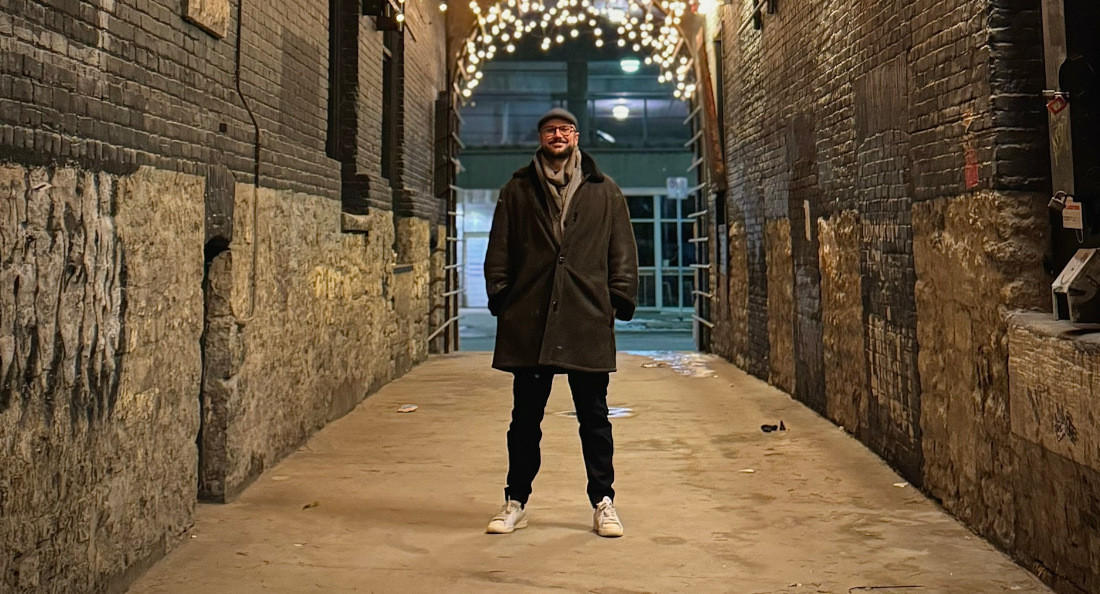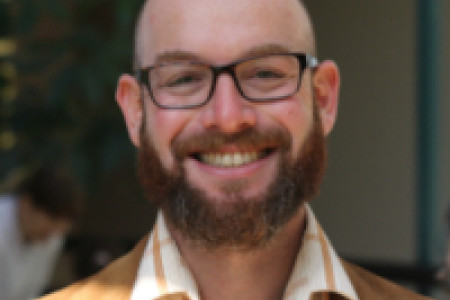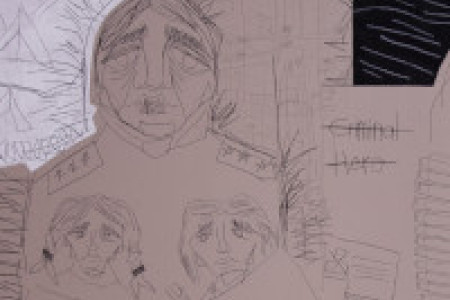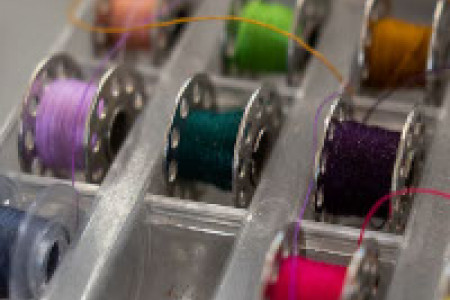Dr. William Rory Dickson, associate professor of religion and culture
PROFile: Prisms of light
Dr. William Rory Dickson’s dream is to make Sufism more accessible to all.
Dickson is an associate professor and chair of the University of Winnipeg’s religion and culture department, where he specializes in Islamic studies. He grew up areligious, but various life experiences in his late teens caused him to re-evaluate his faith.
“I started to think that there might be a lot more going on than meets the eye,” he says. “If that’s the case, how interesting is that? And what have people said about it?”
He remembers working in the northern Alberta oil fields, where he would spend his lunch hours reading any religious text he could find. Dickson converted to Islam at 18 and eventually pursued a master’s in religion at Wilfrid Laurier University.
Dr. Meena Sharify-Funk, his PhD supervisor, inspired him to dig deeper into Sufism. “People don’t always think of Sufism when they think of ‘Eastern’ philosophy,” he says. “I would also say people don’t always think of philosophy and mysticism when they think of Islam.”
Despite Sufism being a diverse faith, Dickson characterizes the ultimate goal as being the emptying of oneself. “You have to get out of your own way, and once you do that, you can become a vehicle for these beautiful qualities of God to come into the world.”
His passion for the subject led him to author multiple books, including Living Surfism in North America, Unveiling Sufism and Contemporary Sufism. Sharify-Funk co-authored the latter two.
Dickson’s latest book, Dissolving into Being, is an attempt to translate key passages of the Fusus al-Hikam (or the Bezels of Wisdom), a medieval philosophical text by Ibn al-‘Arabi. “You could say he’s the founder of the Sufi philosophical tradition,” he says.
One of al-‘Arabi’s key teachings is the Wahdat ul-Wujud or Unity of Being, which Dickson describes with an analogy.
“When you shine a light through a prism, there’s only one light, but on the other side, you (can) see multiple colours. In terms of appearance, the light is now many,” he says. “This is our world. It appears to be multiple in nature, but if you have spiritual insight, you realize it’s just one light.”
It’s only through the limitation of the prism that the different colours can be seen. According to Sufi philosophy, this does not diminish the individuality of each colour, but instead sees them all as equally integral manifestations of God. Dickson equates this to the unique knowledge and beauty of every human being.
“Each experiencing subject has a different revelation of God than every single other, and God never repeats himself twice,” he says. “The more differences you can appreciate, the more of God you can appreciate.”
His hope is that by shedding light toward the diversity and sophistication of Islam, it can be embraced as part of the pluralism of contemporary culture.
—
What’s your favourite thing about Winnipeg?
“Gotta be the food scene. The restaurants here are def initely punching above their weight class. I’ve had some friends who are in the industry, and some of them have gone on to other parts of the world and done really well, so I feel really fortunate to live in a city that has that.”
What is your favourite Sufi poem or saying?
“A thing can be explained only by some- thing more subtle than itself.
There is nothing more subtle than love. By what then shall love be explained?”
—Sumnun al-Muhib
Published in Volume 78, Number 24 of The Uniter (April 4, 2024)







